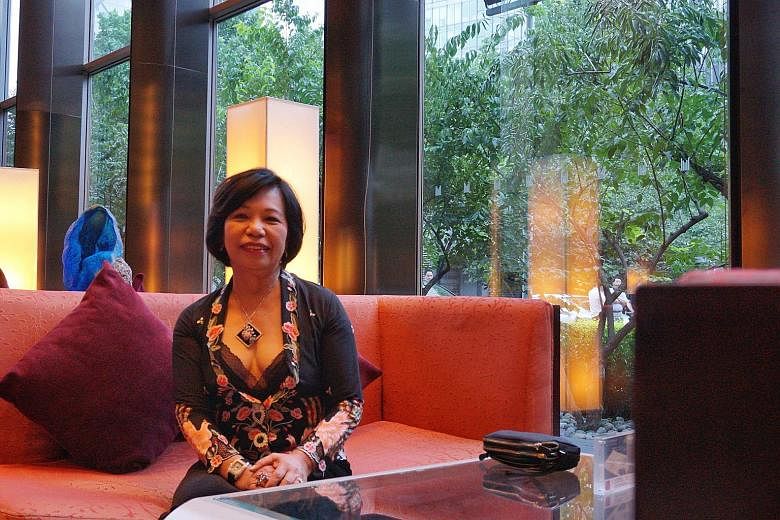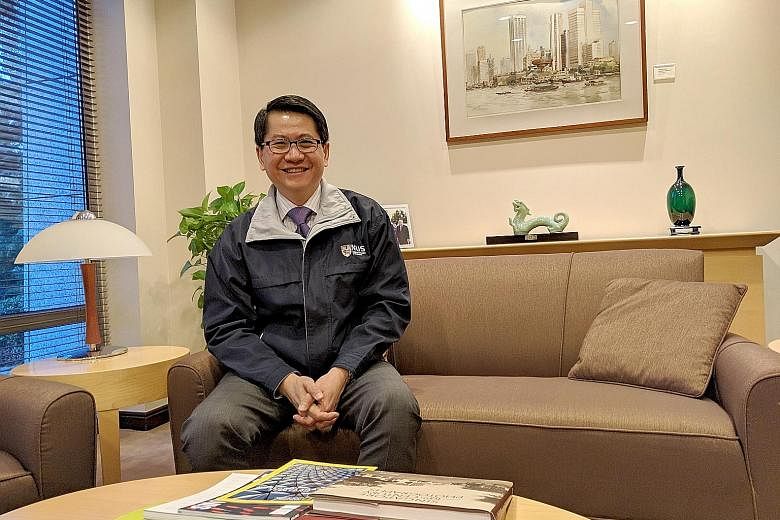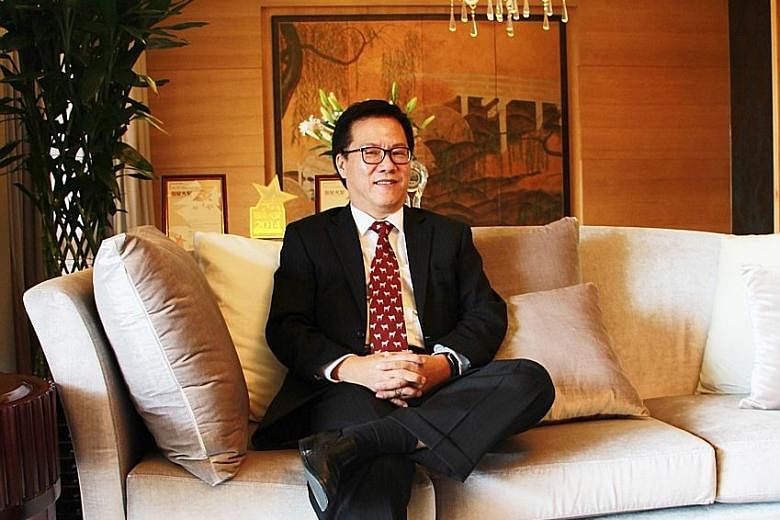Despite having been in China for more than 30 years and visited 100 cities, hotelier Harry Tan still remembers vividly his first stint as front office manager of the Lhasa Holiday Inn.
Tibet in 1987 was a place of complete isolation when Mr Tan arrived as part of the first batch of expatriate staff tasked to convert the state-owned property into the autonomous region's first luxury hotel.
"There was no IDD (international direct dialling) then, and only two international phone lines in and out of Lhasa," he said.
There was then a yawning gap between the locals' skills and the global standards the hotel was gunning for.
Once, an exasperated guest complained of being given the runaround - she was taken to the hotel cafeteria when what she wanted to do was make a long-distance call.
"It turned out she wanted to call Hungary," Mr Tan said with a laugh.
Then there was the time when the humble broom trumped 30 state-of-the-art vacuum cleaners, which had stopped working. Apparently the chambermaids did not bother to empty the dust bags because they thought the dust went up the electric cords plugged into the wall.
Though the Chinese at the time were not worldly by any measure, they were very ambitious, said Mr Tan, who has also worked for the Wanda Group and Shangri-La and today runs his own hotel consultancy.
"If you gave them half a chance, they would take it," he said.
Knowing their chief problem was the language barrier, many of the smarter ones worked very hard to improve their English, said Mr Tan.
"A lot of the people I knew then as receptionists and shift leaders are now GMs with Marriott and Shangri-La, and some of them are even V-Ps," he said, referring to general managers and vice-presidents.
"They climbed all the way to management in these international chains the hard way, and they are still as hungry today."
The speed at which the Chinese learnt and progressed since their country launched reforms and opened up in 1978 has been transformational.
So it is all the more reason why Singaporeans today need to acquire a strong skills set and find ways to add value if they want to survive in China, said Mr Tan.
He noted that opening a Shangri-La or Sheraton hotel in China in the early 1990s would require about 200 expat staff. Today, no more than five are needed, he said, adding: "Make sure you come with value-add, because if you're normal they don't need you. They can have so many here at half the price."
Another veteran noted that those headed to China are required to have a certain fortitude, discipline and a keen eye for detail.
Beijing Smart Garments general manager Dorothy Seet, 66, who has been in China for more than 20 years, recalls her own trial by fire.
On arriving in 1994, she found that her family's textile business was bleeding money and staff.
She later learnt the previous general manager had replicated the business, and was stealing away both customers and workers.
Said Ms Seet: "You must be able to delegate authority and work, but you must also look out for signs of change and be able to draw a line and change tactics."
And while she agreed with the old chestnut that China is a big place with deep regional nuances that require different strategies, one effective constant for her has been finding people whose values match up.
"Every time I interact with the Chinese, I'll try in my own way to analyse them to see what are their value systems, and if it fits what I believe in, then I'll try and work more with them," she said. "There are certain levels of variation between provinces and places, but the core values should be there."
How else can Singapore stay a relevant and useful partner to a fast-changing China?
"That's one question I've asked myself every single day for the last almost seven years," said Mr Stanley Loh, Singapore's Ambassador to China.
The first step lies in understanding China's priorities and evolving the partnership as needs change, while bearing in mind Singapore's interests and capabilities, he said.
For instance, training of officials has evolved greatly since Deng Xiaoping said during his 1992 Southern Tour that Chinese officials should learn from Singapore's approach to social governance.
Instead of training organised along themes such as urbanisation issues, Mr Loh said Singapore and China this year experimented with a tailored course for officials of Xiongan, Hebei province, that anticipated the wide needs of setting up a new city meant to connect the Beijing-Tianjin-Hebei area.
Another key point is to have "a deep appreciation of our Singapore identity, what we stand for and our value proposition", and to leverage on our strengths of integrity, efficiency and reliability, he added.
"China already has 1.35 billion people. A friend from an independent Singapore working with China in areas of common interest can be of far greater value to China," he said.
Agreeing, Ms Seet said: "The Singapore brand has a certain image and positioning here. When the Chinese want a long-term partnership that they don't have to worry about, that's when they look for Singapore Inc."




